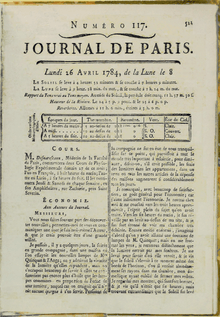
In 1758 Benjamin Franklin published “The Way to Wealth,” a basic text about Republican economic thought within capitalist society in the United States of America. The text is a compilation of proverbs that Franklin had published twenty-five years earlier in his famous almanac “Poor Richard.” This almanac, which provided him with fame and prosperity, was in turn a vademecum of popular culture abundant in sayings, poems, recipes, Indian remedies and even weather predictions. You can Click here for more.
The Addressing of the Book
“The Way to Wealth” was addressed to emigrants, especially Germans and Scots of Calvinist origin, who came to Pennsylvania at that time, whose parliament Franklin was a relevant member. The goal was to politically wake up this newly emerging class of mechanics or enterprising artisans who escaped misery, fearful of the arrogance and Quaker arrogance in the host territories. “The Way to Wealth” became during the nineteenth century one of the most widely read texts in American schools and was for generations a kind of practical method to achieve the American dream.
Depressing laziness, keeping an eye on the business and not neglecting savings are the three great messages that characterize “Wealth” among its readers.
Regarding the first recommendation parting indolence, Franklin says with dinosaurs: “laziness moves so slowly, that poverty soon reaches it rules your business, do not let it be they who govern you”. The great Bostonian insists on a wise idea of what we would call effective time management today: the best possible time should be that which is lived at that precise moment. “Work for the day, because you don’t know if you can do it tomorrow.”
The Advice of Franklin
Franklin advises circumspection and care in self-employment. We must be settled and not abandon matters to the third party. For this the dissimulation is not interested; “Do not handle your tools as if you were wearing silk gloves.” In addition to professional competence, it raises a subtlety of considerable scope: “Many who do not hit would live off their cunning, but out because the desire to have superfluous objects ends with them.”
- About saving and abandoning the superfluous, Franklin is fortunate in images worthy of a brand-new fashion video clip: “satins and silks, reds and purples turn off the fire in the kitchens.” On some occasions, it is grandiloquent (“the pride that lunches with vanity end up having dinner with contempt”) and at other times ironic and mocking (“the creditors form a very superstitious sect, faithful observers of the days and times agreed upon)” .
- Benjamin Franklin, from whom three hundred years of his birth, contemporary of Hume, Voltaire and Jefferson, a prominent personality in American Independence, is serving in 2006, continues to offer useful ” timeless, common sense ” advice for “The Way to Wealth” for people with difficulties
We assemble parliaments and councils, to profit from their collective wisdom: but at the same time, we necessarily have the disadvantage of their united passions, their prejudices and their personal interests. By this means, artificial men triumph over wisdom, and even deceive those who possess it; and if we judge by the deeds, the judgments, the edicts, which regulate the destiny of the world and the relations of commerce, an assembly of important men, is the craziest body on earth.

